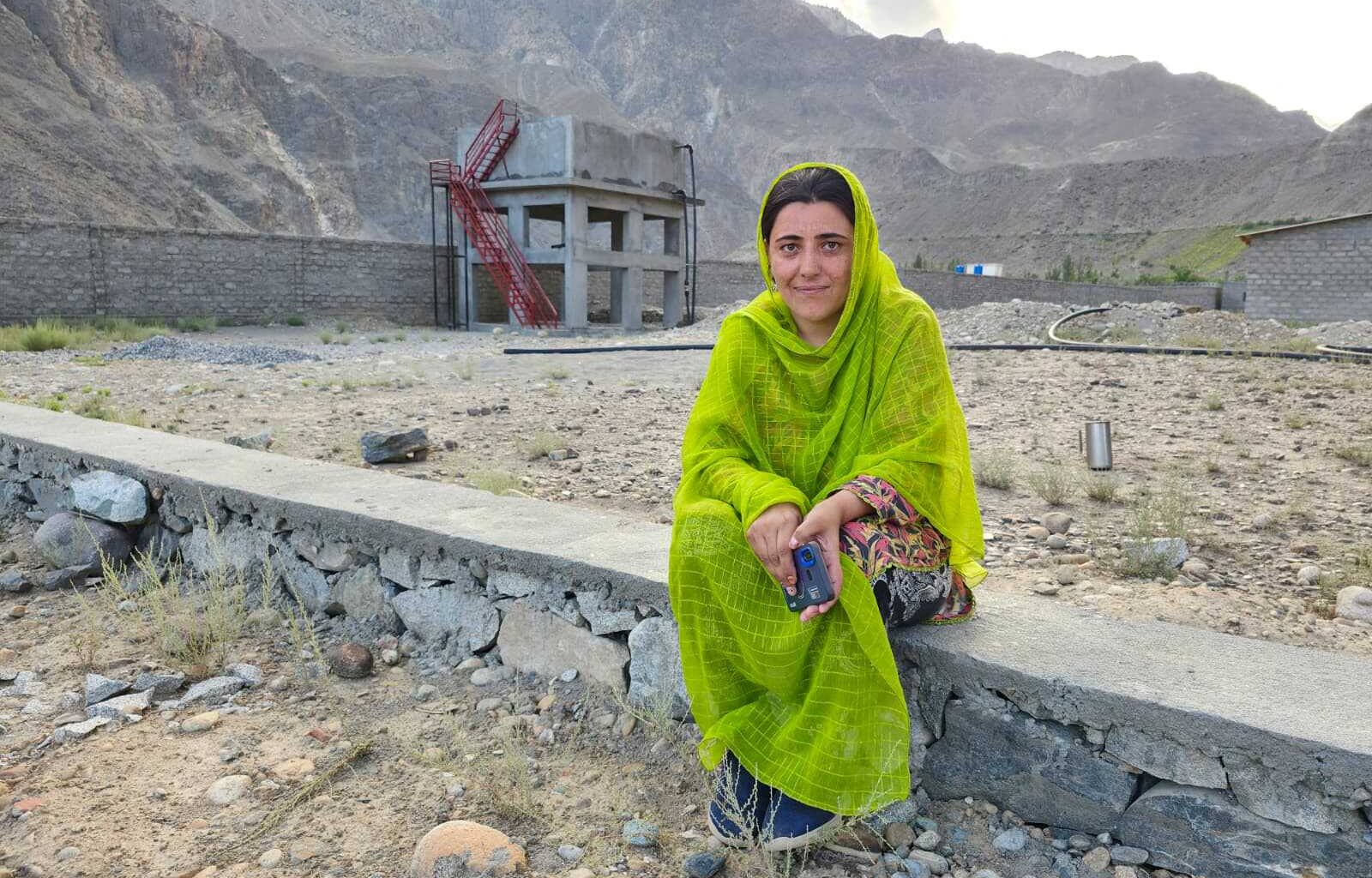Affected communities are concerned not only about housing, water, sanitation and healthcare, but also about the risk of repeated displacement due to natural hazards, Hussain continues. Loss of ancestral land leads to financial insecurity, and resettled families often feel marginalised and excluded from decision-making. “These communities aspire to a safe and dignified resettlement with sustainable livelihood opportunities,” he says.
A solar-powered solution for Darkut Colony
In 2024, Darkut Colony’s Local Support Organization (LSO) approached WWF-Pakistan, a civil-society environmental organisation, for help. Using funding from its Water Resource Accountability in Pakistan (WRAP) programme, a solar-powered water supply scheme was installed. The work began in December 2024, and by July 2025, the new system was operational. It provides safe drinking water to Darkut Colony while avoiding carbon emissions.
The community turns on the solar water pump twice a day, once in the morning and once in the afternoon. The water is pumped into a tank, which has a capacity of 28,000 litres, then distributed to households through a network of pipes. According to a WWF-Pakistan official, the project cost 7.1 million Pakistani rupees (about $ 25,000). It has been handed over to the community, which manages its operation and maintenance through a monthly household contribution. The system’s projected operational lifespan is 25 to 30 years.
According to Farasat Ali, the Provincial Project Lead of WRAP at WWF-Pakistan, Darkut Colony has ample sunlight
even in the winter season, so the water supply scheme can fully meet the needs of the entire community through solar energy. He says that the water supplied through the intervention is safe for drinking and meets WHO guidelines and Pakistan’s National Environmental Quality Standards (NEQS).
Residents say the project has brought health improvements and reduced exposure to waterborne diseases. Parveen Bibi notes that the water is “good for drinking” and that people “feel healthy”. Another resident, Shakoor Khan, who lost his farmland and job in the 2010 floods, is grateful for the water scheme but emphasises the need for a backup electric connection during cloudy weather.
Farasat Ali stresses that the solar pump can operate with limited sunlight due to its Variable Frequency Drive (VFD) technology. Nonetheless, he acknowledged that the team planned to assess the need for an additional electric connection in winter.
Devastating flooding in 2025
While the IDPs of Darkut Colony are trying to build a life in their new home, some of their fellow Pakistanis in Gilgit-Baltistan have recently been affected by heavy flooding. According to Faizullah Faraq, a spokesperson for the Gilgit-Baltistan government, 45 people have lost their lives and 41 have been injured in the administrative territory between 22 June and 15 September 2025 due to extreme weather events caused by climate change-induced Glacial Lake Outburst Floods (GLOFs) and cloudbursts. Faraq reports that the government is working to rebuild the damaged infrastructure.
Khadim Hussain of GB-EPA warns that the threat of recurrent disasters is high in Gilgit-Baltistan, explaining that “without comprehensive support systems, climate-induced migration in northern Pakistan is expected to rise exponentially.”
It is vital to provide adaptation support to the mountain communities in Gilgit-Baltistan so that as many people as possible can become resilient to climate impacts and stay in their ancestral homeland. Those who have to leave – like the Darkut Colony community – need sufficient support to start a dignified life in a new home, without discrimination or marginalisation.
Meanwhile, initiatives such as the solar water pump installed by WWF-Pakistan can be replicated in other parts of northern Pakistan where communities are struggling to access safe drinking water.
Link
WWF-Pakistan:
wwfpak.org
Syed Muhammad Abubakar is an environmental journalist from Pakistan. He is currently pursuing a PhD in Communication at George Mason University, USA.
s.m.abubakar@hotmail.com
X: SyedMAbubakar
This story is part of The 89 Percent Project, an initiative of the global journalism collaboration Covering Climate Now.
